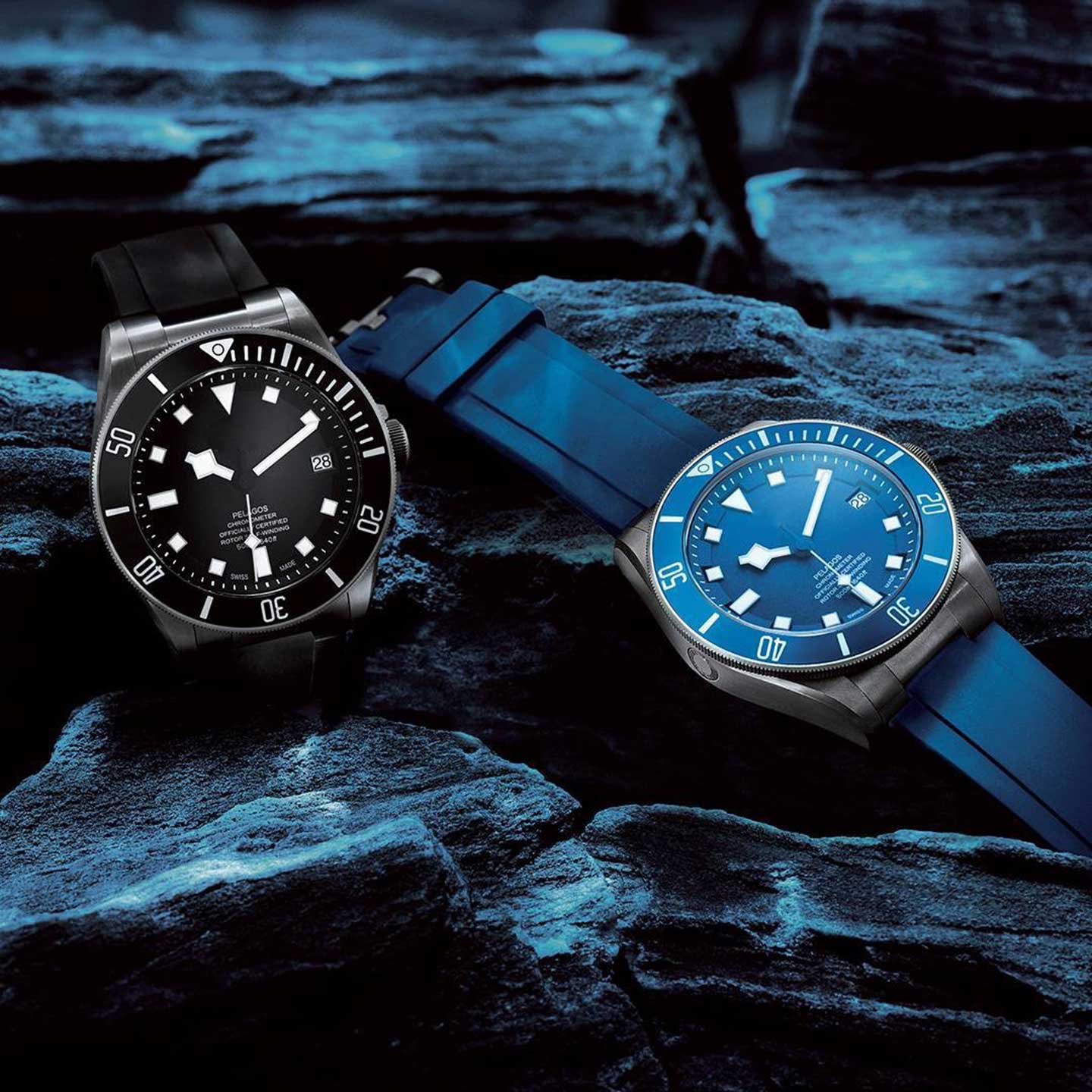In the competitive world of dive watches, partnering with a professional custom manufacturer can make all the difference in creating a timepiece that stands out for its quality, functionality, and design. Whether you’re an aspiring brand owner or a business looking to expand your product line, here’s a comprehensive guide to selecting the right custom dive watch manufacturer.
1. Verify Certifications and Compliance
A reputable manufacturer must adhere to international standards. Look for certifications like ISO 6425, the global benchmark for dive watches, which ensures water resistance, readability, and durability. Check if the manufacturer’s facilities undergo regular audits to maintain these standards. For example, a manufacturer certified for ISO 6425 compliance demonstrates expertise in producing watches suitable for professional diving up to 100 meters or more.
Also, inquire about material certifications. Stainless steel should meet 316L standards, while ceramics must be scratch-resistant and hypoallergenic. Sustainable materials like recycled titanium or eco-friendly composites are gaining traction—ensure the manufacturer can source ethically certified components.
2. Evaluate Technical Capabilities
Deep technical expertise is non-negotiable for dive watch manufacturing. Assess the manufacturer’s proficiency in:
Waterproofing Technology
Case Construction: Look for manufacturers using integrated case designs, such as Rolex’s Oyster case or Omega’s Ringlock system, which ensure water resistance up to 300 meters or beyond.
Sealing Mechanisms: Double gasket crowns, screw-down case backs, and helium escape valves (for saturation diving) are critical. Ask for detailed specifications on their sealing processes and pressure testing methods.
Movement Expertise
Mechanical vs. Quartz: Mechanical movements (e.g., self-winding automatic) appeal to luxury markets, while quartz movements offer precision and affordability. Ensure the manufacturer has in-house expertise in both, like ETA movements for mechanical or Ronda for quartz.
Chronometer Certification: For high-end models, seek manufacturers capable of producing COSC-certified movements, guaranteeing accuracy within -4/+6 seconds per day.
Dial and Bezel Technology
Lume Application: Super-LumiNova or tritium tubes are essential for underwater visibility. Check if the manufacturer applies lume in-house with consistent thickness (e.g., 0.3mm for optimal glow).
Cerachrom Bezels: Scratch-resistant ceramic bezels, like those used by Rolex, require specialized sintering processes. Ensure the manufacturer has experience with high-temperature ceramic production.
3. Assess Customization Capabilities
A professional manufacturer should offer end-to-end customization:
Design Collaboration
CAD & 3D Modeling: The manufacturer must provide detailed 3D renderings and prototypes, using software like SolidWorks or Rhino. For example, they should be able to translate a concept like a dive watch with a nautical-themed dial into a tangible prototype within 4-6 weeks.
Branding Elements: Custom logos, case engravings, and unique dial patterns (e.g., wave textures or dive-related motifs) should be feasible. Ask for examples of previous custom designs, such as a manufacturer’s work on a limited-edition dive watch for a marine conservation organization.
Material Customization
Custom Alloys: Some manufacturers can create custom metal blends, like Bremont’s Trip-Tick case material. Inquire about unique material options that align with your brand’s story.
Strap Options: From rubber molded with custom patterns to recycled nylon straps, the manufacturer should offer diverse strap customization, including quick-release mechanisms for underwater use.

4. Review Production Capacity and Lead Times
Minimum Order Quantities (MOQ): Established manufacturers may have MOQ of 500-1,000 units, while smaller firms might accept 100-200. Ensure the MOQ fits your business plan.
Production Timeline: A standard custom dive watch production cycle takes 12-16 weeks, including design, prototyping, and assembly. Rush orders (6-8 weeks) should be available for an additional fee.
Quality Control Process: Ask about their QC protocols—for example, each watch should undergo 10-bar pressure testing, thermal cycling (-10°C to 60°C), and 1,000-hour saltwater exposure for corrosion resistance.
5. Examine Portfolio and Client Testimonials
Dive Watch Specialization: Focus on manufacturers with a proven track record in dive watches, not just general timepieces. Look for case studies like their work with professional diving teams or military contracts.
Client References: Contact past clients to verify product quality, on-time delivery, and after-sales support. A manufacturer like Blancpain, with its Fifty Fathoms heritage, demonstrates decades of dive watch expertise.
Innovation Examples: Check for unique features they’ve developed, such as integrated dive computers (like Garmin’s Descent series) or eco-friendly materials (e.g., Patek Philippe’s use of 18k rose gold from sustainable sources).
6. Consider After-Sales Support and Warranty
Warranty Terms: A professional manufacturer should offer at least a 2-year warranty on movements and waterproofing, with clear guidelines on repairs and replacements.
Spare Parts Availability: Ensure they can supply components like crowns, gaskets, and dials for at least 10 years, crucial for long-term brand sustainability.
Service Centers: Global service networks, like Rolex’s authorized service centers, enhance customer trust. If the manufacturer lacks this, inquire about their repair processes for international clients.
7. Evaluate Cost and Transparency
Price Breakdown: Request a detailed quote covering design, materials, production, and shipping. Avoid manufacturers with vague pricing—for example, a 300m waterproof dive watch with a stainless steel case should cost \(50-\)150 per unit at MOQ 500, excluding branding.
Hidden Costs: Clarify if tooling fees (for custom molds), certification costs, or import taxes are included. A transparent manufacturer will provide a cost breakdown upfront.
Payment Terms: Negotiate milestones (e.g., 30% deposit, 50% on prototype approval, 20% on delivery) to mitigate risks.
Partner for Long-Term Success
Choosing a custom dive watch manufacturer is more than a transaction—it’s a strategic partnership. Prioritize technical excellence, certification compliance, and customization flexibility. Brands like Omega and Tudor have thrived by collaborating with manufacturers who blend innovation with reliability. By following these steps, you’ll identify a partner who can transform your vision into a dive watch that withstands the depths—both literally and in the market.
Ready to start your custom dive watch journey? Contact Rower Watch today for a consultation, and let’s create a timepiece that dives deeper than the competition.
#divingwatch #diverwatch #customdivingwatch #watchmanufacturer #watchfactory

 Home
Home Gezfeel
Gezfeel Jun 10 2025
Jun 10 2025



 Address: Room 405, Building A, Qianhai Zhichuang Technology Industrial Park, No.60 Nanchang Road, Nanchang Community, Xixiang Street, Baoan District, Shenzhen, China
Address: Room 405, Building A, Qianhai Zhichuang Technology Industrial Park, No.60 Nanchang Road, Nanchang Community, Xixiang Street, Baoan District, Shenzhen, China

